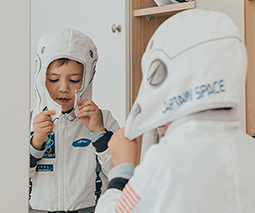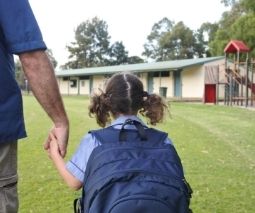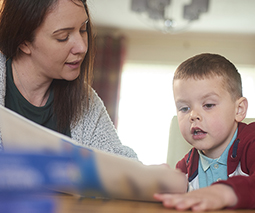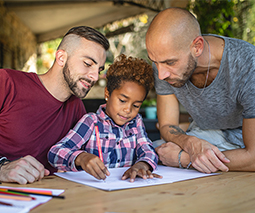Decided to hold your child back from school? Then you need to read this

As more and more parents (puts up hand) decide to hold their child back from starting school, citing research and also their inner mum gut that’s telling them their child isn’t ready, lots of us wonder how we can best support our preschoolers as they wait another year to start big school.
Will they miss their friends? Be bored? That sort of thing.
Shevonne Hunt from Feed Play Love spoke to Dr Kate Highfield, an early childhood education specialist at Early Childhood Australia, about how we can do this.
Here are her helpful tips.
Listen to Dr Kate Highfield on Feed Play Love:
Why we’re holding kids back
There are many reasons why parents hold their little ones back from starting school. School readiness is about more than being able to hold a pencil correctly or knowing your ABC’s.
As Kate says: “What is important for a child entering school is confidence and an ability to separate from their parents and move confidently into a new space,” she says.
“Those are social and emotional skills and those areas of readiness to me are far more important than the academic kind,” she adds.
If you feel your little one could do with another year in preschool to develop these skills, then holding them back from starting school may not be such a bad idea. But if you are also worried they may get bored and understimulated, Kate has some great ideas.
“I miss my friends”
While it will be sad for your little one to wave goodbye to his buddies who are headed off to big school, Kate says it’s important to talk him through this.
“We need to prepare our children that these children, their peers, have moved into another context.”
Kate suggests we give our little ones new roles, say by telling them that now they are one of the older kids at childcare, they will get to be a leader to the younger ones.
Kate also suggests that when talking to our little ones about their leaving school friends, we shift the focus onto the activities they love to do at preschool and will get to do for another year.

Will he be under-stimulated?
Another common fear of parents who hold their kids back from starting school is that their little one may get bored at preschool.
To this Kate says we need not worry.
“They’ll [preschool] will cater to children who are more academically advanced and children who are less academically advanced. That’s why early childhood teachers rock. They start with what the child is doing and then move from there. So if you’re in a quality service, who are catering for children’s needs that won’t be a risk at all.”
Kate adds, though, that this is a great opportunity for us as parents to make some changes to our little one’s routine to build on their academic interests.
“For example, you might like to take your child to the library every week.”
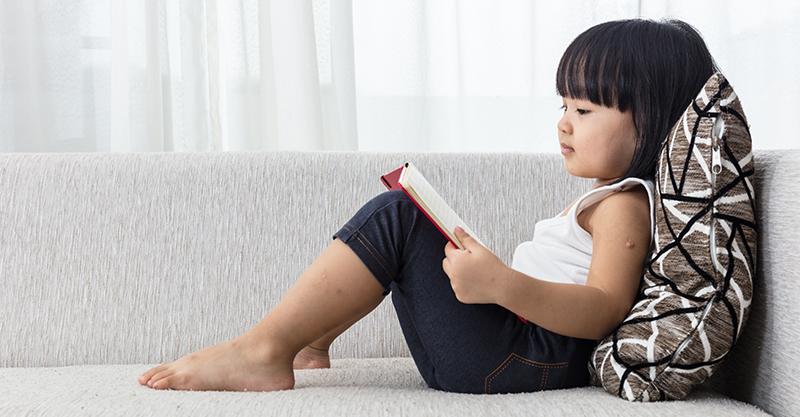
Stimulating brains for school
In addition to the above, Kate says we as parents can help to encourage our little one’s love of learning in everyday ways.
“What we’re trying to do is to build a real passion for learning, a real joy in learning and a joy in finding out about things. So being adventurous with your child is a really wonderful opportunity whether that’s going to the library or going to the zoo or your local park and going on new adventures because that can spark really exciting things,” she says.
Kate suggests we take photos on these outings and turn them into books using a book creator app and then have your child share this with friends and family.
Speaking of apps, Kate says there are lots of tech tools that teach letters, sounds and numbers in fun ways to preschoolers.
“But in some ways what we need to focus on is living our best life and then using the tech to remind us of that,” she adds.
Rid yourself of fear
Lastly, Kate advises parents of late-school starters to relax.
“As parents, we need to reduce our fear about going to school and whether that’s your fear about, ‘Have I done the right thing?’ Or whether that’s the fear about, ‘Have I tried the right school?’. So as parents, we need to become educated about making good choices.”
To help us do this, Kate suggests we get informed.
“I’d encourage you to talk to your early childhood educators in your preschool or early learning context, but I really also encourage you to read up and find some resources. Early Childhood Australia and the Australian Primary Principals Association have a brilliant book called First year at school, which has some essential tips for parents and carers. I cannot recommend it more highly because it’s about educating ourselves as parents to know what to expect, which helps alleviate all of those feelings of guilt and gives us some great ideas to do this year before they go to school so that we’ve got a really strong transition.”
Great advice Kate, thank you!




